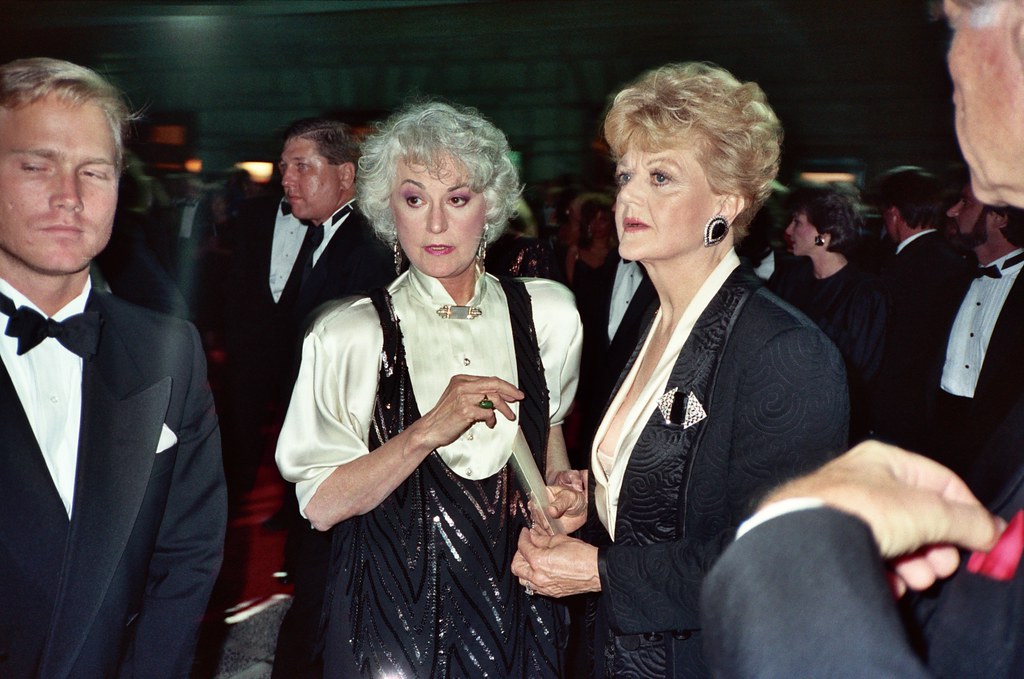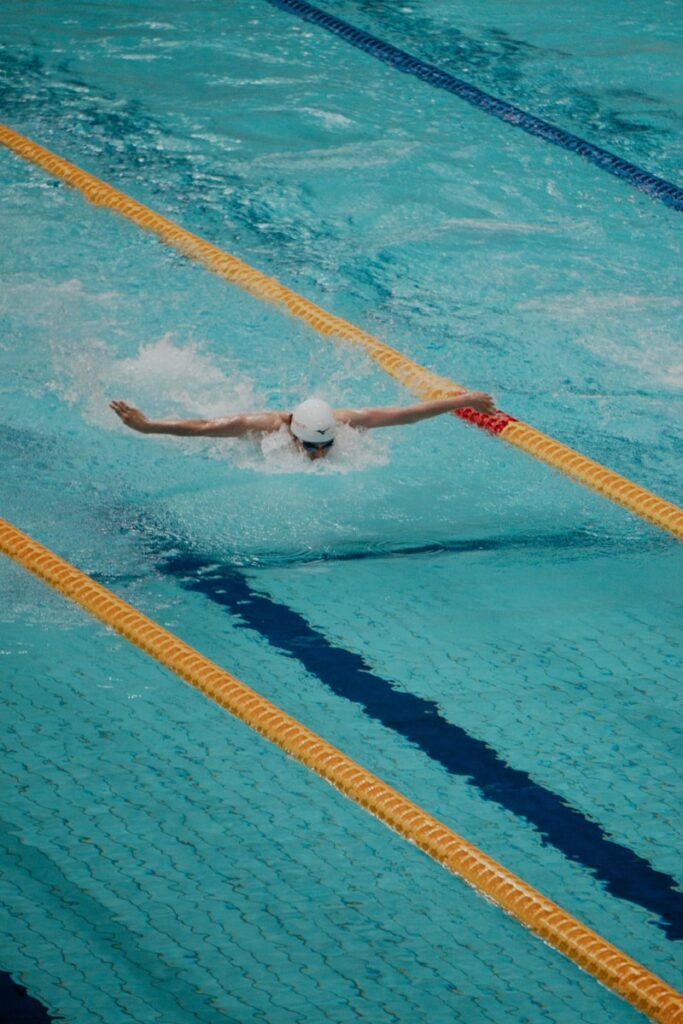
The world of competitive swimming has recently been captivated by an extraordinary talent from China: Yu Zidi. At just 12 years old, she has emerged as a global sensation, making history with her astonishing performances at the World Aquatics Championships in Singapore. Her debut on such a grand stage has not only garnered widespread global praise but has also prompted a significant conversation, particularly within her home country, about the delicate balance between celebrating nascent brilliance and shielding young athletes from the potential pitfalls of intense public scrutiny.
Yu Zidi’s journey at the World Aquatics Championships was nothing short of remarkable. Despite being only 12, an age at which many are still refining basic strokes, she became the youngest-ever medalist at the championships. This historic achievement came through her participation in the women’s 4×200-meter freestyle relay, where the Chinese team secured a bronze medal, with the United States taking silver and Australia gold. Though she swam in the qualifying race and not the final, her contribution earned her a well-deserved medal, marking a pivotal moment in her burgeoning career.
Her presence at the championships was notable given that World Aquatics typically mandates a minimum age of 14 for competitors. Yu’s exceptional times, however, allowed her to receive an age exemption, underscoring her prodigious talent. She recounted her excitement to reporters, stating, “I was really excited to join the relay. It felt great.” She further added, “The World Championships are fun, and I hope to swim faster,” a sentiment that hints at her innate drive for improvement.
Beyond her relay medal, Yu demonstrated extraordinary individual prowess, coming tantalizingly close to the podium in three other events. She missed a medal by merely 0.06 seconds in the women’s 200-meter medley, by 0.31 seconds in the women’s 200-meter butterfly, and by 0.50 seconds in the women’s 400-meter individual medley. Her consistent top-four finishes against the world’s elite swimmers speak volumes about her competitive spirit and formidable skill.
These performances in Singapore built upon a foundation of domestic records. At the Chinese national championships in May, Yu Zidi set a world record for any 12-year-old, male or female, in the 200-meter individual medley with a time of 2:10.63, earning her a silver medal. Her 200-meter butterfly time of 2:06.83 was noted as the fifth-fastest in the world that year, a time that would have secured a gold medal at the 2024 World Championships. Such a display of speed at her age is truly unprecedented.
Her remarkable achievements have naturally led to comparisons with some of swimming’s most celebrated names. Hailed as the world’s greatest swimmer her age, Yu has been placed in the same breath as phenoms like Canada’s Summer McIntosh, a multiple gold medalist in Singapore, and American icon Katie Ledecky. Intriguingly, Yu is already swimming the 400-meter individual medley approximately 15 seconds faster than McIntosh was at the same age, indicating a trajectory that could reshape the future of competitive swimming.
The genesis of Yu Zidi’s swimming career is as humble as it is inspiring. She began swimming around age six, not with grand aspirations of becoming a professional athlete, but simply to escape the oppressive summer heat in her home province of Hebei. “The summer was too hot, and my dad took me to the water park,” she explained to China’s state-run Xinhua News Agency. “I enjoyed the coolness of the water and spent a lot of time in different small pools for kids.”
It was during one of these casual visits to a swimming pool that her extraordinary talent caught the eye of a coach. Yu recalls, “One day, a coach approached me and asked if I wanted to swim faster.” Her initial response was one of curiosity and openness: “At the time, I thought: why not give training a try?” This spontaneous decision marked the beginning of her professional journey.
Her training regimen is rigorous, a testament to her dedication. Yu balances her academic responsibilities, including school and exams, with four to six hours of swimming training every single day. She trains with the Hebei Taihua Jinye club under the guidance of Olympic medalist Li Bingjie, whom she looks up to as a role model. Despite the intense schedule, she expresses a clear drive: “My age is currently an advantage and I hope to grow and develop more strength in the future.” She added, “I want to experience the world-class competition,” a wish she has already begun to fulfill.
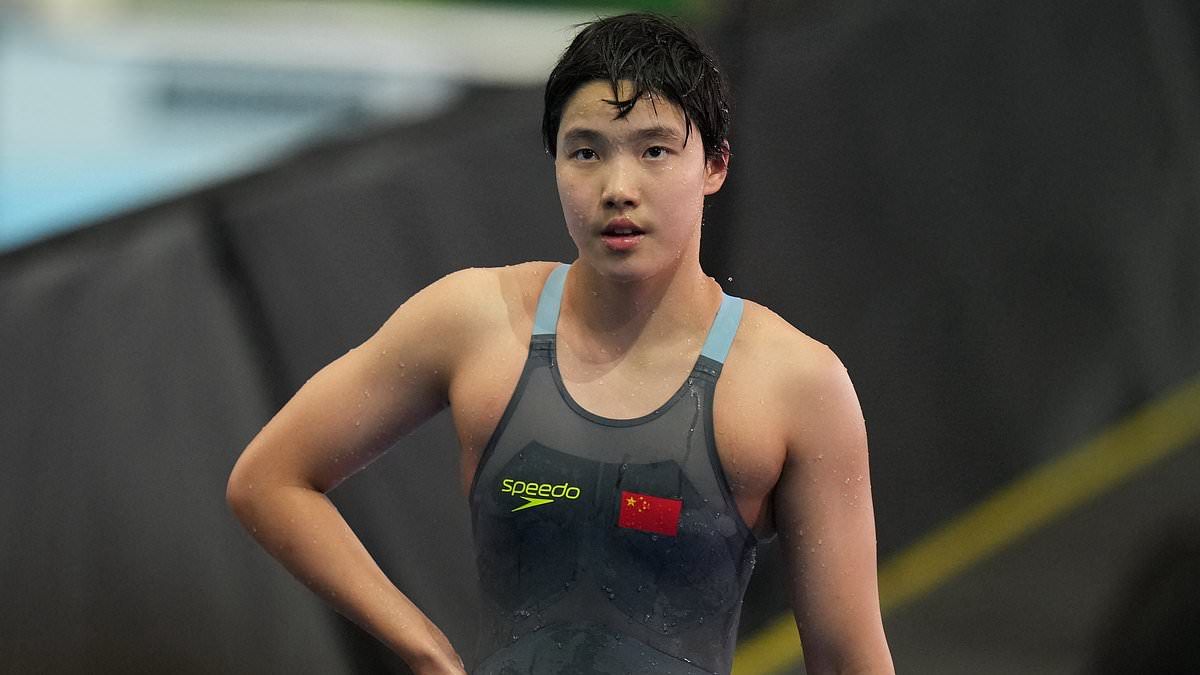
Looking ahead, Yu Zidi’s future in the sport appears exceptionally bright. At 15 years old, the Los Angeles Olympics in 2028 will be a clear target, where, if her progression continues, she could well be among the leading medal contenders. Her current trajectory suggests she possesses the potential to not only compete at the highest level but to significantly influence the landscape of global swimming for years to come.
However, Yu’s meteoric rise to fame, while celebrated, has also been met with a note of caution from observers and fans within China. There is a palpable concern that the sudden spotlight and the immense public expectation could expose her to “disproportionate” pressure, potentially hindering her long-term development and preventing her from achieving her full potential. This concern reflects a growing awareness of the psychological demands placed on elite athletes.
The state-backed digital news outlet Shanghai Observer echoed this sentiment in an editorial, urging a measured approach. “We must let this 12-year-old grow her splash slowly into a wave,” the editorial stated, adding pointedly that there is “no need to rush into hero worship.” This plea for restraint highlights a desire to foster a healthier, more sustainable environment for young talents like Yu.
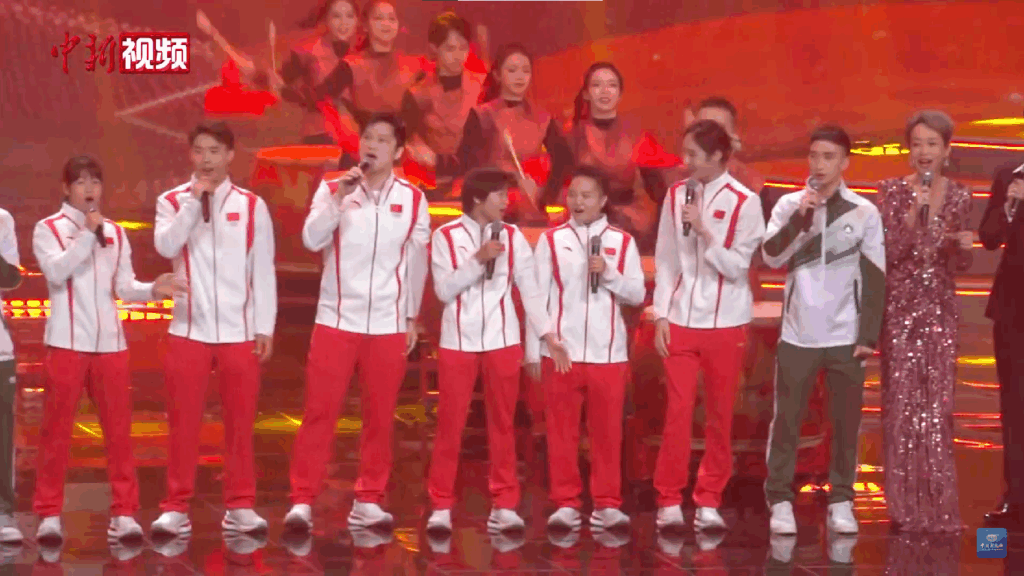
This warning hints at a significant shift in how China approaches the promotion of its elite athletes. Historically, success at the highest levels of sport, particularly dominating medal tables at the Olympics, has been central to China’s construction of national identity. However, this intense push for gold has often come with considerable stress on the athletes, exacerbated by the intensity of public scrutiny and, in some cases, persistent doping allegations.
The emergence of organized sports fandom in China, particularly around 2016, further complicates this dynamic. According to Zhang Bin, a veteran sports commentator in China, Chinese social media users, disillusioned by previous scandals involving pop stars, began to turn their adoration towards Olympic athletes. This new wave of fans brought with them “sophisticated strategies” borrowed from the entertainment industry, leading to what Zhang described as “fandom wars” among different groups vying to outdo each other in supporting their favored athletes.
This extreme sports fan culture manifests in various concerning behaviors, including “fan mobs,” cyberbullying, and disruptive heckling at sports events. Its visible impact was particularly evident around the Paris Olympics last year. One striking example involves gold-medal-winning diver Quan Hongchan, whose return to her hometown saw visitors flock to her home for days, some livestreaming with their phones, others flying drones, and travel agencies even offering tours of her village. Such intense, uninvited attention illustrates the potential for fandom to become overwhelming.
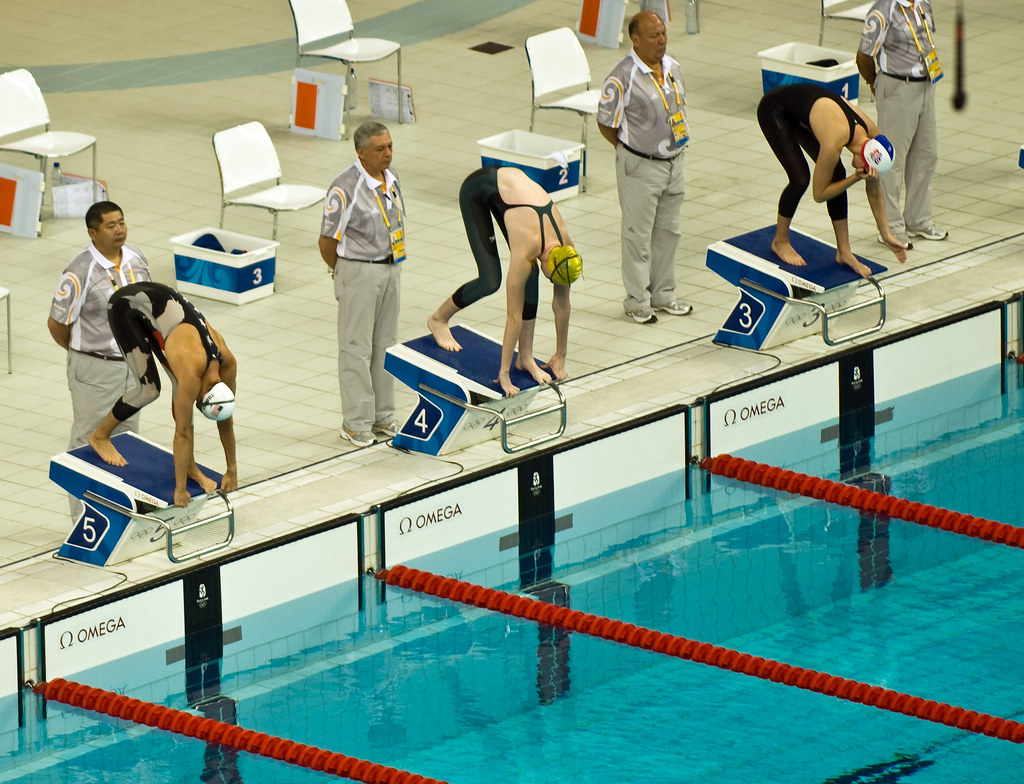
Another case in point is Olympic champion swimmer Pan Zhanle, who was widely praised for making the proactive decision to disband his official fan group. This action came after his success at the Paris Games led to an overwhelming surge of new followers, highlighting the profound impact that such sudden fame can have on an athlete’s personal life and well-being.
The challenges extend beyond online phenomena. Chinese table tennis player Fan Zhendong, an Olympic gold medalist, recounted a deeply traumatizing experience in 2023 when a stranger managed to sneak into his hotel room. He shared his distress with Phoenix TV, stating, “I never thought, as an athlete, I would have to go through something like this.” Fan also revealed that organized online abuse had caused him “severe” mental stress, contributing to several unexpected losses.
In response to these growing concerns, the Chinese government has initiated a crackdown on problematic fan behavior. Its cyberspace watchdog announced in April that it had shut down over 3,700 social media accounts found to contain illegal or noncompliant content aimed at Chinese athletes, demonstrating a clear intent to curb the excesses of this fan culture.
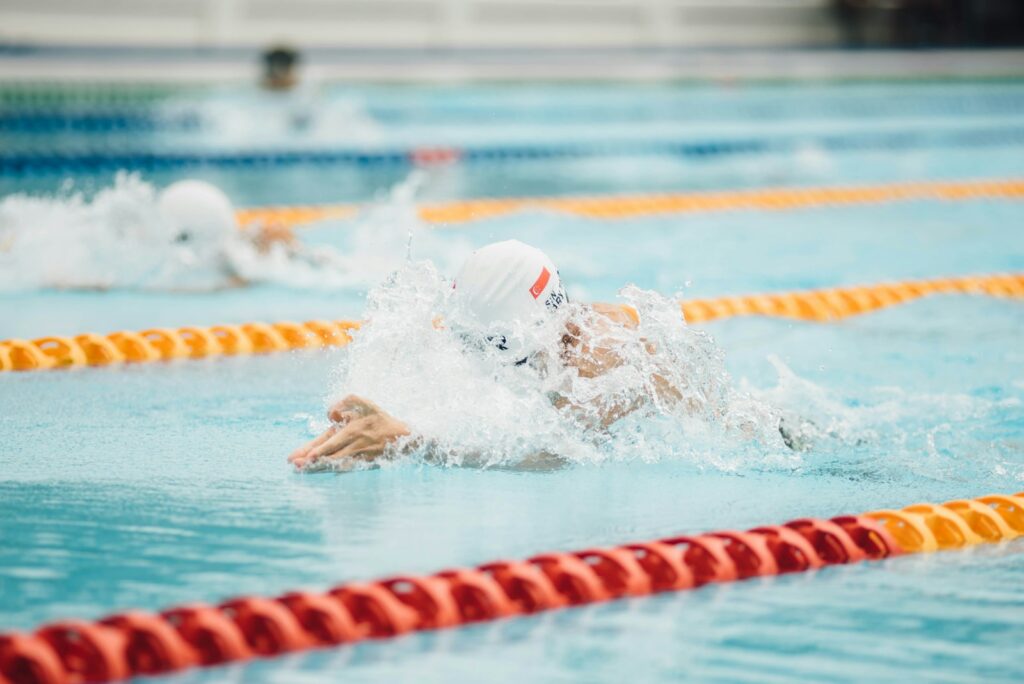
For Yu Zidi, who will naturally attract a considerable following given her prodigal talent, the potential for fan groups to become a concern is very real, as noted by Zhang Bin, who attended the World Aquatics Championships in Singapore. While China has often been overprotective of its athletes, Zhang suggested that it “may not be a good thing if Yu is living in isolation like protected giant pandas.” He emphasized that “for athletes, learning to interact with the media is a necessary part of their development,” advocating for a balanced approach that includes media engagement.
Jessie Zhou, a 23-year-old graduate student in Hong Kong who follows table tennis star Fan closely, commended the Chinese media for adopting a “restrained tone” in its coverage of Yu, particularly while the issues surrounding extreme sports fandom remain unresolved. Her concise advice underscores the prevailing sentiment: “Just let the kid stay focused on training.” This perspective highlights the critical need to prioritize the athlete’s core development above all else.
As Yu Zidi’s extraordinary journey unfolds, the international swimming community and observers in China will continue to watch with keen interest. Her talent is undeniable, a rare force that has already propelled her onto the global stage at an exceptionally young age. The challenge now lies not just in her continued athletic development but in successfully navigating the complex currents of fame, public expectation, and the unique landscape of Chinese sports fandom. Striking the right balance — celebrating her achievements without burdening her with undue pressure, and guiding her through media interactions while safeguarding her well-being — will be paramount to ensuring that her remarkable splash truly grows into a lasting wave, shaping the future of swimming for decades to come.


